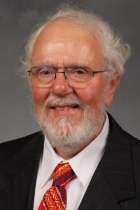New Study Shows No Increase in Problem Gambling During Past Decade
For years, opponents of online poker have tried to make us believe that the spread of online gambling, even strictly regulated gambling, would take a sledgehammer to the foundation of society. That our churches would crumble to the ground. That our two-parent, two-child households would mutate into something unrecognizable. That our children would become glassy-eyed, foul-mouthed, illiterate, button-mashers who will be living in the gutter before they are out of diapers. That demons will rise and eat our souls. They want it one way, but time and time again, they have been proven wrong. The latest shot at the heart of the Sheldon Adelson army comes from the University of Buffalo, where research was recently completed showing that there has been no appreciable increase in problem gambling over the past decade.
The study was conducted by John W. Welte, PhD and Grace M. Barnes, PhD of the University at Buffalo Research Institute on Addictions (RIA), along with William F. Wieczorek, PhD of SUNY Buffalo State. Funded by a $3 million grant from the National Institute on Alcohol Abuse and Alcoholism, the goal of the study was to see if rates of problem gambling have changed over the past decade. Bottom line: they really haven’t and they certainly have not increased.
“We compared results from two nationwide telephone surveys, conducted a decade apart,” said Dr. Welte in a press release summarizing the findings. “We found no significant increase in the rates of problem gambling in the U.S., despite a nationwide increase in gambling opportunities.”
The most recent survey was conducted from 2011 to 2013; 2,963 people were interviewed. It was compared to a 1999-2000 study in which 2,613 people were interviewed. Respondents were asked about their gambling habits in a wide range of games, “including raffles, office pools, pulltabs, bingo, cards, pool, gambling machines, casinos, lottery, Internet gambling, and sports, horse or dog track betting.”

John W. Welte, PhD
Image courtesy: buffalo.edu
The researchers used some traditional criteria to determine if a person was a problem gambling including “constantly thinking about gambling, increasing bets to sustain thrill, lying to conceal gambling activity and the inability to stop gambling, among others,” and determined that problem gambling rates remained stable. Those rates stayed in the 3.5 percent to 5.5 percent range (depending on the criteria used) and rates for pathological gambling, the most serious form of problem gambling, kept in the 1.0 to 2.4 percent range.
Additionally, problem gambling in the female population decreased slightly, from 2.9 percent to 2.5 percent.
The study also found that overall gambling decreased. In the 1999-2000 survey, 82.2 percent of the respondents said they had gambled in the past year and the average number of days in which one gambled was 59.9 days per year. In the 2011-2013 survey, both numbers dropped: 76.9 percent said they gambled in the past year and the average number of gambling days was 53.7.
Now, to editorialize for just a moment, while Dr. Welte says it is “clear that U.S. residents are gambling less often,” the most recent survey was taken well after the Unlawful Internet Gambling Enforcement Act of 2006 (UIGEA) was passed and most of it was conducted after April 15th, 2011, known in poker circles as Black Friday. Since Black Friday, in particular, there have been much fewer opportunities for Americans to gamble online, which may have been reflected in the above gambling frequency numbers. It is also entirely possible that this was already taken into consideration or that increases in brick and mortar gambling across the country made up for decreased opportunities online.
Speaking of increased land-based gambling, the press release also mentions that Dr. Welte had previously determined that those who live within 10 miles of a casino are twice as likely to become problem gamblers, but obviously this latest research has shown that problem gambling has not increased, even though the number of casinos in the U.S. has. To that, Dr. Welte does not have a definitive answer, but does theorize, “It may be due to the economic downturn we experienced starting in 2008, which resulted in a decline in casino business. It also could be due to the ‘theory of adaptation’ — that while initial increases in exposure to gambling venues lead to increases in rates of problem gambling, a population will eventually adapt and further negative consequences will not continue.”
The entire study, called “Problem Gambling — A Decade of Change” can be found online at the Journal of Gambling Studies, though it does cost $39.95.
The RIA was founded in 1970 as the Research Institute on Alcoholism. The name was changed in 1992 to reflect the additional addiction issues that the Institute had grown to study. It now researches not just alcohol addiction, but also other substance abuse, gambling addiction, and the societal and psychological impacts of addiction.



















COMMENTS